Sink your teeth into a slice of this Eggless Fruit Cake and you won't miss the eggs for a second.
It's a soft and spicy fruit cake, and the fruit doesn't require any soaking beforehand.
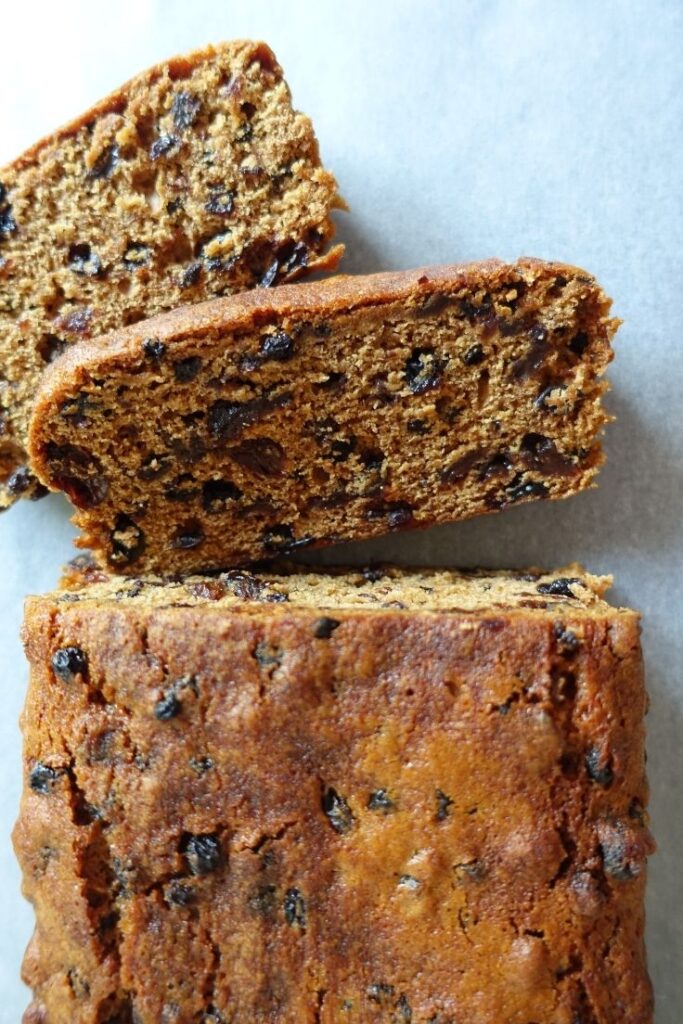
This recipe from Nana Ling's recipe book is dated 28 March 1941.
It isn't the only eggless recipe in her handwritten collection – there are quite a few.
While some people avoid eggs these days due to allergies or veganism, there's a whole different explanation for Nana Ling's eggless recipe collection.
While eggs were rationed at times because of the Second World War, during most of Nana Ling's cooking days there was another big reason for egg shortages.
Chickens took a little break from laying during winter. Yes, it was their time to rest. Time to put up their little chicken feet.
So, if you're going to cook up an eggless recipe, winter is the perfect time to do it. I cooked up this Eggless Fruit Cake Recipe as we head deeper into winter here in Australia.
To find out more about why (and how) we now have eggs all year round, I spoke to an egg expert (an eggs-pert!).
Eggless Recipes
An interview with Claire Bickle, Horticultural & Sustainability Writer, Educator and Speaker
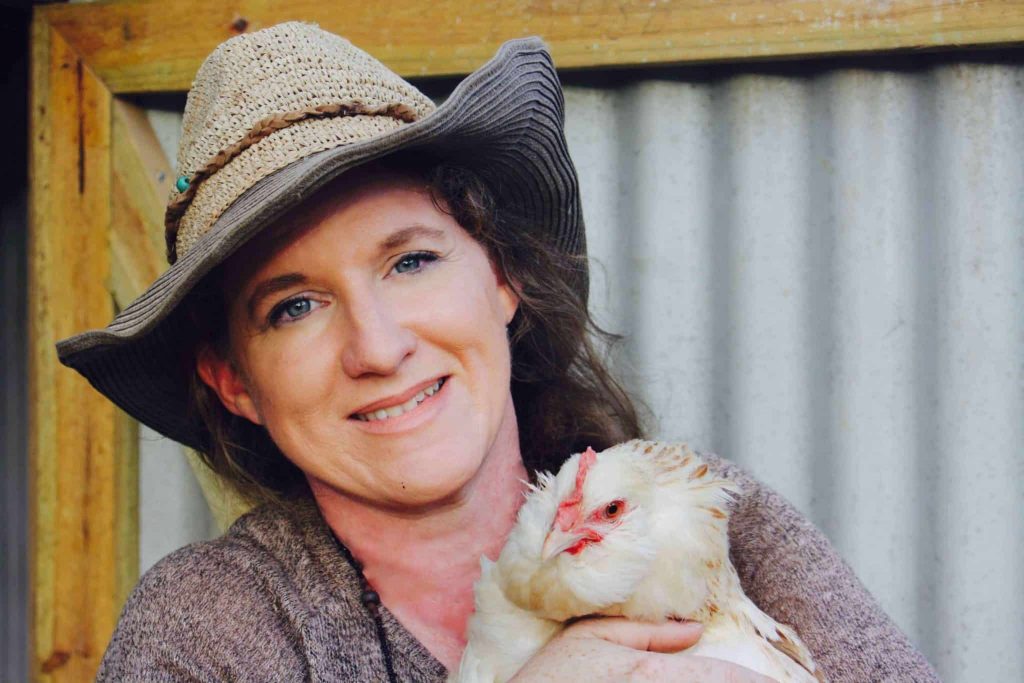
Follow Claire on Facebook and Instagram
I understand chickens don’t naturally lay eggs all year round. Can you explain the natural egg laying cycle and the reasons why chickens may stop laying?
The natural egg laying cycle for a pure breed chicken is spring through to autumn. As the daylight hours shorten, so do the hens laying capacity. The shortening of the days is the marker or indicator that it’s time to take a break from laying. The reason being is that it's too risky to incubate and hatch chicks during winter. Chicks hatching throughout the winter months are most likely going to die due to the cold winter temperatures.
"I truly believe the fact that they get to take a break each year increases their laying life. It’s their down time, their recuperation time."
Are first-time backyard chicken owners sometimes surprised by this?
Most people forget that, biologically, chickens are not here just to lay eggs for us but that the sole purpose of egg production for them is to reproduce. Shocking, I know! I have found over the years that people are quite indignant by this inconvenient fact.
"We are constantly talking about seasonal eating of fruit and vegetables but most folks forget to include meat and eggs and other animal related products in this movement."
People need to be prepared to expect fewer eggs, even no eggs, throughout the winter months. When they do have the egg glut in spring they should be putting into practice egg-storing tricks such as freezing egg whites and yolks separately.
Why can we now buy eggs all year round (even the supposedly free-range chicken-friendly eggs)?
There are eggs in grocery stores 24/7 because the big egg producing companies trick the chickens into thinking that the daylight hours are not shortening.
"Even the eggs labelled 'free range' come from duped chickens. When those ‘free range’ chickens come in to roost at night their coops have artificial lighting. This makes the chicken’s body clock think that it is still spring and summer daylight hours."
Of course having chickens that never take break from laying has its down falls. These chickens tend to "burn out" faster.
The hybrid layers have been bred to be egg-laying machines and these chickens will often lay into the winter months and not have tendencies to go broody and so forth. But these poor girls tend have reproductive issues a few years into their life because of never ending laying and all up quite often only live for 3 or 4 years at the most.
Compare this with purebred breeds that quite often live 10 or more years.
This is why we see so many ex-battery hens needing adoption. Once they stop laying 365 eggs a year, usually after the the first 1 or 2 years, and drop down to 250-300 eggs per year, the egg producers no longer see them as viable egg layers since they are not laying at full capacity.
Hybrid layer's egg production will steeply decline by age 3 as a general rule.
What are the best reasons to have your own chickens and how much space do you need?
"The best reason to keep chickens is of course the capacity to have your own fresh organic home laid eggs."
There are many other reasons why chickens are a fabulous backyard pet. They are educational for the young – they get to have an understanding of where eggs come from (not just from a cardboard box at the supermarket). They teach children about the responsibility of caring for an animal.
Chickens also make great garden workers, removing weeds, eating old vegetables crops, turning over soil in set locations when placed in movable tractors.
They also provide manure, which is a great resource for fertiliser when added to the compost.
And they are wonderful for our mental wellbeing. Having something to care for and interact with in our very own backyards can be priceless for those living alone, suffering from mental health issues and so forth.
No matter your location you will need to check your local councils rules and recommendations on keeping backyard poultry. The area required? Can you keep roosters? Placement of housing? It will vary from council to council.
On average chickens will need a square foot of roosting space in the night house and a minimum of a square metre in the run – but I reckon 2 square metres is more advisable. It is very important to ensure that the night house where the chickens will roost is predator proof. Foxes, birds of prey, carpet snakes, goannas, dogs and more will try to predate on your feathered friends, so be sure to give them the protection and safety they deserve.
Thank you Claire for generously sharing your knowledge.
Nana Ling's Eggless Fruit Cake recipe
Keep scrolling for the tested and tweaked version.
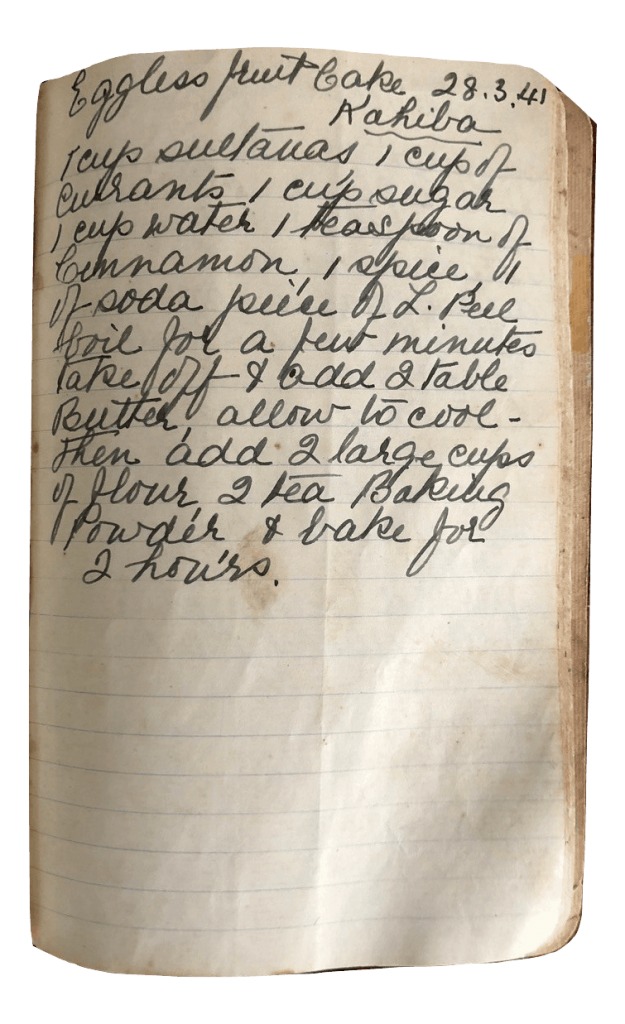
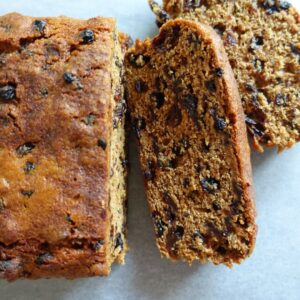
Eggless Fruit Cake
Ingredients
- 1 cup sultanas
- 1 cup currants
- 1 cup sugar
- 1 cup water
- 1 teaspoon cinnamon
- 1 teaspoon mixed spice
- 1 teaspoon bicarb soda
- 1 tablespoon grated lemon peel
- 2 tablespoons butter
- 2 cups plain flour
- 2 teaspoons baking powder
Instructions
- Place sultanas, currants, sugar, water, spices, bicarb soda and grated lemon peel in a saucepan and, stirring, bring to the boil. Boil for 3 minutes.
- Take off heat and add the butter, chopped. Stir through as the butter melts.
- Allow mixture to cool.
- Add flour and baking powder and stir well.
- Put mixture in a well-lined loaf pan and cook in a moderate oven for 1 hour and 20 minutes or until cooked.
- When finished cooking, wrap cake (still in tin) in a clean tea towel and allow to cool.

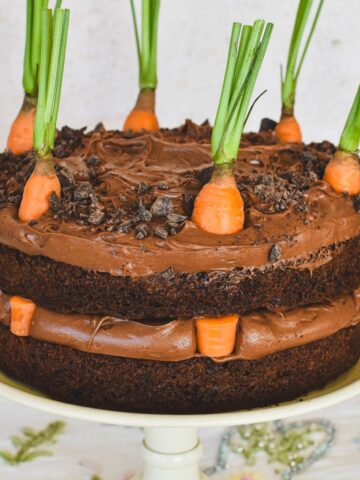
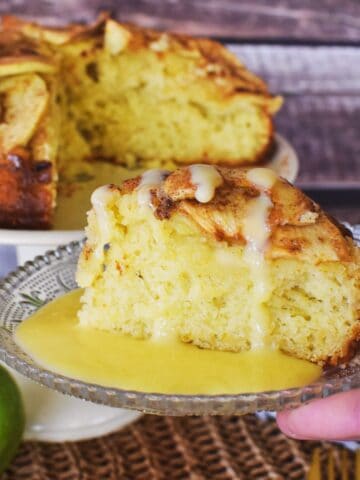
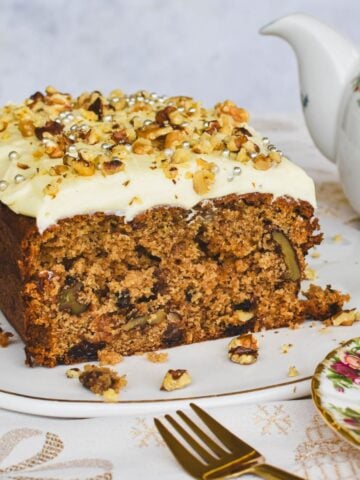
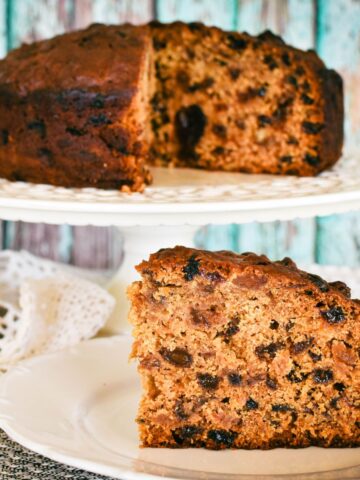
Leave a Reply